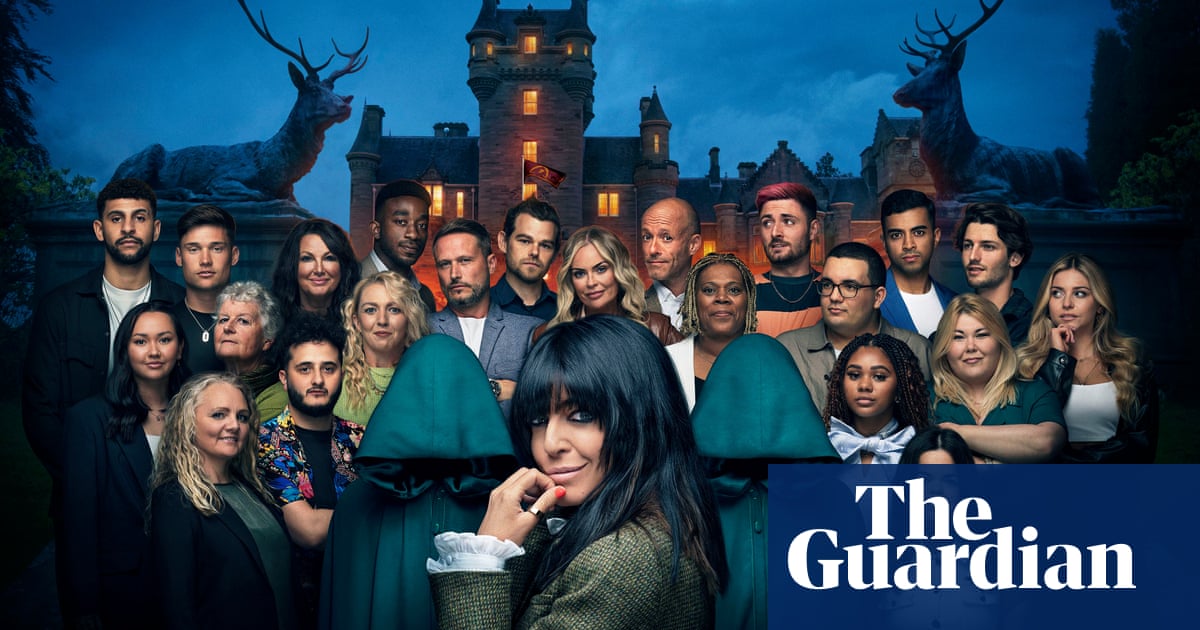
en years ago, Falle Nioke was sitting with only his bolon drum for company in a Gambian jail cell, some 3,000 miles from the Kent seaside town of Margate where he now lives and light years from his current world of domestic bliss and critical acclaim.
Raised in Conakry, Guinea, the 33-year-old singer and percussionist spent most of his 20s as part of a touring group of musicians that played across west Africa, a pursuit often hamstrung by arrests pertaining to immigration permits. Nioke survived by whatever means necessary to hold on to his musical passion. “I used to make soap and go to the market to sell it to pay the rent,” he says today. “If someone was selling rice, we would sing for them and we would get some fees and some food.” His indelibly positive worldview was forged during these years. “Everywhere I have been, there are people who will be happy to help,” he says.
Nioke’s resolute optimism kept his dream alive, now bearing fruit in two lauded EPs: last year’s Youkounkoun was made with Ghost Culture; the latest, Marasi, with Swedish producer sir Was (who has released music on City Slang and Memphis Industries). Based on an African proverb about the importance of a strong work ethic, lead single Rain is typical: Nioke’s deep voice offsetting the languorous, breezy pace of the traditional instrumentation, accentuated by restrained electronic touches. His beguiling sound fast made him a regular feature on BBC Radio 6 Music, the significance of which is not lost on him: “I have been listening to the BBC since I was a kid back home.”
The Gambian authorities were far from the only obstacles that Nioke had to overcome to get here. His parents did all they could to dissuade him from his artistic pursuits. “When I was a child, eight or nine, I was watching the TV and singers would come on and I thought to myself, ‘When I grow up, I’m going to do something like this,’” he says. His parents sent him to live with his uncle in an effort to stamp out this insubordination. Nioke’s resolve only solidified: he developed obsessions with Oumou Sangaré, Salif Keita and Bob Marley and began to sing in public aged 11, while also learning to play the gongoma, a Guinean thumb piano, and the three-stringed, bow-necked bolon. He was soon writing and performing regularly in seven languages, including Susu and Coniagui, the latter being the native tongue of Nioke’s own tribe.
His attempts to please his parents by following an academic track were futile. “I did my exam to go to university twice and I didn’t pass,” he says. “So I decided I’m just going to go into exile and follow my music, because there is no father or no mother who will tell me not to do this, I’m going to follow my mind.” He and a group of seven musicians from south-west Guinea banded together their resources and lived a nomadic life on the road for seven difficult years, only returning home when they felt they had hit a wall.
A vanishingly unlikely double meeting with a stranger changed Nioke’s life. He met British photographer Charlotte Player while she was on a beach holiday in Guinea in 2013. They lost touch – then three years later, they met again in the same place. “We didn’t expect that to happen in our lives, it just felt right and we fell in love,” he says. They married in Conakry in 2017; the following year, Nioke relocated permanently to Player’s home town of Margate, where they are raising their two children.
Aside from the obvious culture shocks (such as wearing gloves for the first time), what surprised him the most was how closely life in the UK mirrored life back home. “When living in Africa, you see Europe and America on TV but you don’t see the reality. You would never be shown people queuing at the food bank or living on the street. People want to risk their lives to come. Now I can see that I know people in Africa who are doing better than some people here. I would never have thought that before.”
Nioke established a strong local following through regular live performances around town. Through his wife’s local connections, his music career had the opportunity to take the next step. “If it wasn’t for her, nobody would have heard any of my music,” Nioke says, his voice faltering. PRAH Recordings owner Stephen Bass became his manager after seeing one of the Margate shows. He played sir Was a 30-second clip of Nioke’s vocals, and the producer agreed to collaborate. The goal of their Marasi EP was to appeal as much to Nioke’s Coniagui elders as his new western audience – his tribe play Loucuta, one of his earliest songs, everywhere they go.
What’s more, having heard the finished product, even his parents are now on board with his musical career. “They are proud of me now,” he says. “They can see that I am focused on music and they are saying prayers for me.”












